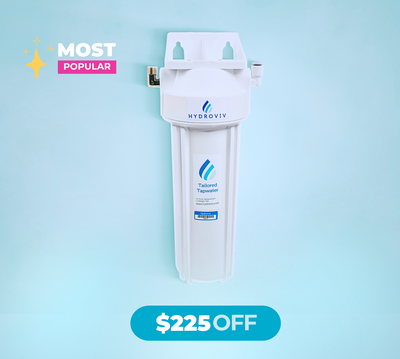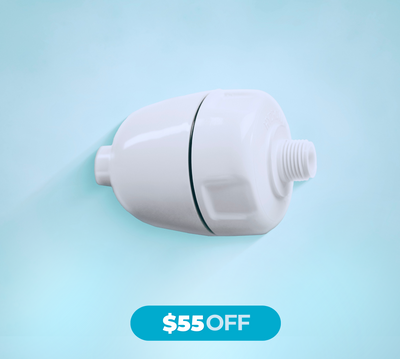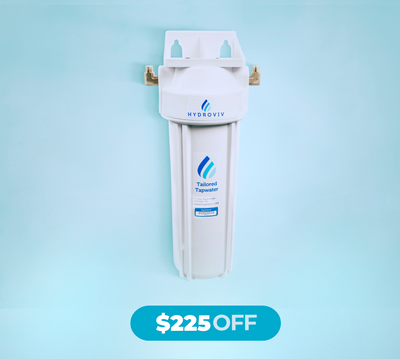Problems We Found in Pittsburgh, Pennsylvania Drinking Water
RSSEmma Schultz M.S. | Scientific Contributor
Updated June 11, 2021 to include current data
For our assessment of Pittsburgh's water quality, our Water Nerds aggregated water quality test data from the Pittsburgh Water & Sewer Authority, the U.S. Environmental Protection Agency (EPA), as well as from samples that we collect and analyze. Our team then cross references these data with toxicity studies in scientific and medical literature. The water filters that we sell in Pittsburgh are optimized with these issues in mind.
Source Of Pittsburgh Drinking Water
Pittsburgh tap water originates from surface water. Water is drawn from the Allegheny River before being treated at various treatment facilities. Pittsburgh Water typically treats and distributes 70 million gallons of water every day.
Lead In Pittsburgh Drinking Water
Pittsburgh has a problem with lead in drinking water. Lead enters into home tap water through old lead service pipes and lead-containing plumbing. When corrosion control measures fail (such as the recent crisis in Flint, Michigan), lead leaches into drinking water, and can reach toxic levels. Recent analysis for lead in Pittsburgh found a 90th percentile concentration of 5.13 parts per billion. In addition, 2 of the 158 samples exceeded the Federal Action Level of 15 parts per billion.
It should be noted that Pittsburgh is still in compliance with federal regulations, because “an action level exceedance is not a violation”. EPA, CDC and American Academy of Pediatrics all acknowledge that there is no safe level of lead for children. In addition, federal regulations cannot take into account levels measured at an individual tap. Check out this 2016 article for more information on lead contamination in the Pittsburgh water supply.
Chromium 6 In Pittsburgh Drinking Water
Chromium 6 is a highly toxic metal that is not currently regulated by the EPA. Pittsburgh’s tap water has recently averaged 535 parts per trillion for chromium 6. For a bit of context, these levels are over 28 times higher than the concentration determined to have a negligible impact on cancer risk.
Disinfection Byproducts (DBPs) In Pittsburgh Drinking Water
DBPs are a type of halogenated emerging contaminants that form when chlorine-based disinfectants are added to the water supply, and subsequently combine with naturally-occurring organic matter. These chemicals are not yet well-regulated, but the EPA has stated that they have been linked to increased risk of bladder cancer, and kidney, liver, and central nervous system problems. EPA regulates two types of DBPs: Total Trihalomethanes and Haloacetic Acids 5). Pittsburgh’s tap water has recently had moderately high levels of DBPs, and the highest concentration of Trihalomethanes was 70 parts per billion,.
Use Of Chloramine In Pittsburgh Tap Water
While most cities use chlorine as the primary disinfectant, Pittsburgh’s water is disinfected with chloramine (which is formed by mixing chlorine and ammonia). Chloramine is the primary culprit for what many customers report as the “bad taste”of tap water, and unlike chlorine will not dissipate if left in the fridge overnight. Most one-size-fits-all water filters use filtration media that successfully removing chloramine, but the filters that Hydroviv builds for Pittsburgh's water problems use special filtration media that are designed to remove chloramine as well.
Still Have Questions About Pittsburgh's Tap Water?
Hydroviv is a water filtration company that uses water quality data to optimize water filters for each city’s water. The chemicals that we list above are what we consider to be “points of emphasis” so we can build the best water filter for Pittsburgh tap water, but all of our home filtration water systems provide broad protection against other contaminants commonly found in drinking water (e.g. VOCs, heavy metals [including lead], pharmaceuticals, solvents, pesticides, mercury).
If you’re interested in learning more about water filters that have been optimized for Pittsburgh tap water, feel free to visit www.hydroviv.com, reach out by email (hello@hydroviv.com) or through our live chat. We also frequently post water-related news on Twitter or Facebook.
Please Share This Pittsburgh Water Quality Article On Social Media With Anyone You Think Would Benefit From The Information!
Recommended Articles For You
What Do I Need To Know About Lead Contamination And Lead Poisoning?
What Are The Ways To Filter Chromium 6 From Pittsburgh Drinking Water?
Why Shouldn't I Use A TDS Meter To Assess My Home's Water Quality?
What Do I Need To Know About Arsenic In Tap Water?


